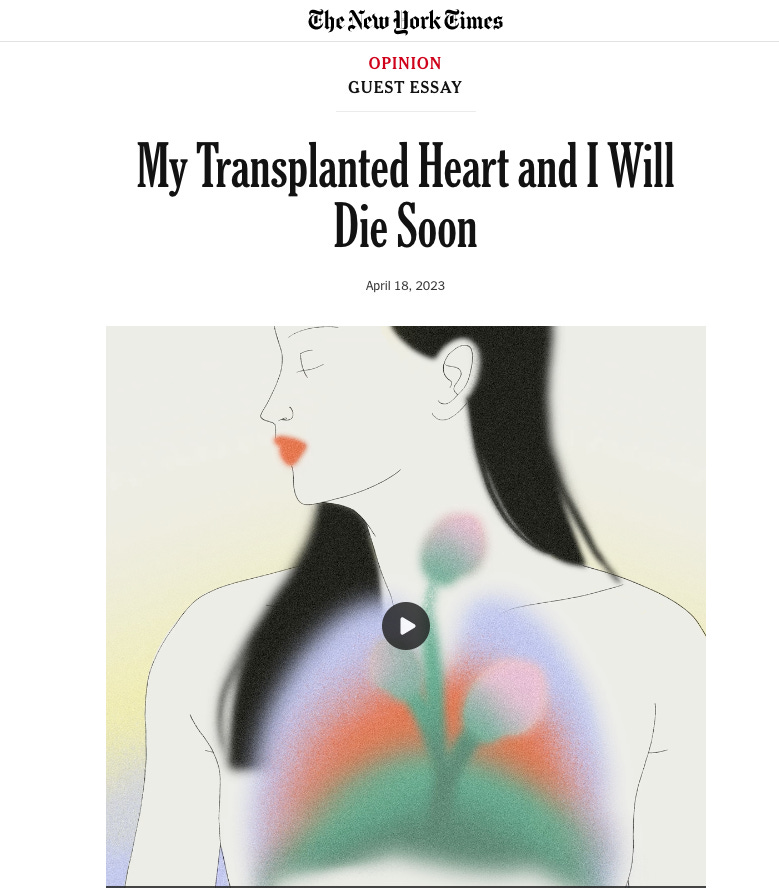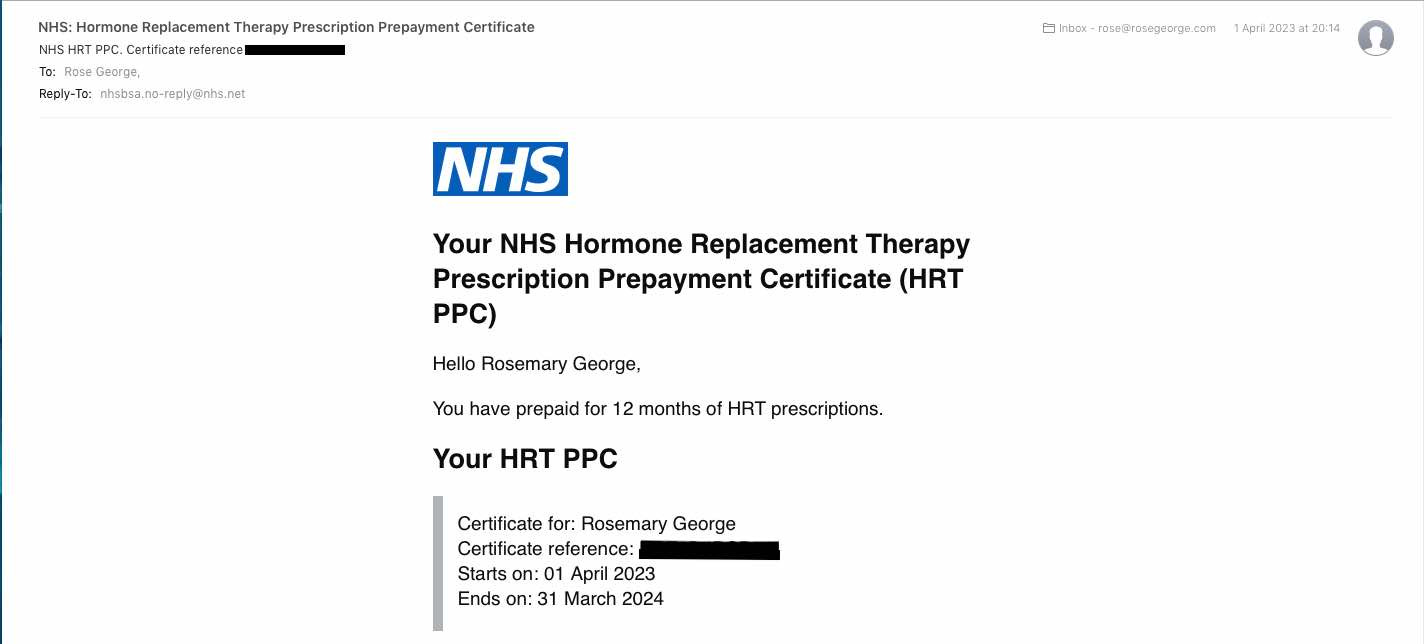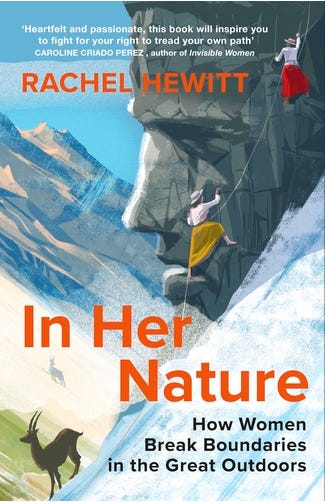A sorry state; a happy thing
On robots and drugs
I’ve been thinking about assumptions. Not the excellent Catholic (mostly) first name given to girls (usually in the version Assunta or Assumpta), though actually when it comes to gloriously gothic Catholic names I prefer Immacolata. But about assumptions about the extent of our scientific knowledge. This is because when you have female gynaecology, or even a female body in general, you have to get used to being an experiment. You get used to “let’s try this for a few months” or “what about if we double/halve the dose”? You live in the land of “see how we go.” This is particularly acute in the menopause, which is a pure medical mystery, you’d think. If I were young enough, I would study nothing but oestrogen and become a world expert in it, in how it changes, improves, diminishes and rattles my own body, and in its dozens of functions.
Other assumptions: I’ve been reviewing a book about menstruation, which is mostly science-based and makes the case that the scientific gaze has not focused on menstruation ever and still doesn’t do it properly, but assumes that there is such a thing as a “normal” menstrual cycle, when there is not. And also I read this quite astonishing piece in the New York Times by Amy Silverstein:
Silverstein has had two transplanted hearts, and she has cared for them with perfect dedication. But because transplant medicine is 40 years old and not updated, the immunosuppressant drugs she has to take to convince her body not to reject the foreign heart have given her cancer. Because of “the sorry state of transplant medicine.” Because “organ transplantation is mired in stagnant science and antiquated, imprecise medicine that fails patients and organ donors.” Survival rates for transplant recipients have not improved since Silverstein got her first donated heart in 1985. The US government puts the required survival period for recipients at a measly one year. As Silverstein says in this CBS monologue, that’s not good enough for recipients, but nor is it good enough for the families who give permission for their relatives’ organs to be placed in a stranger’s body so that that stranger may live, or may live better.
I found it fascinating that there is an assumption that things are the best they can be, when they are only just adequate. Obviously being a transplant recipient hampers you, as Silverstein says: when you have been given everything, demanding any more is seen as ungrateful. A doctor I discussed this piece with said, “well, obviously” (he was male) doing a gold standard double-blind randomized trial would be very difficult.
It would if you gave some people a useless placebo and some people the new and better immunosuppressant. But if you gave some people the regular stuff that has been doled out for 40 years with no improvement, and others the good stuff that pharmaceutical companies should have spent billions developing, then you’re unlucky but you’re not dead. I suspect as is usual that there isn’t enough money in it. Although that argument doesn’t work for menopausal women because there are millions of us. We are a hell of a market. And until last month, when I used my new HRT PPC certificate, a momentous revolutionary thing that looks just like a boring email:
we paid good and too much money for essential items that should have been free. The PPC certificate is a £19.30 charge for a year, thus saving me about £150 or so. But it doesn’t cover testosterone and sertraline, two items I consider as essential to my menopause care as the progesterone and oestrogen it does cover. So, work in progress. I wonder if the “shut up and be grateful” leash that Silverstein laments works with menopausal women too. I usually think that we do not demand more because women cope and manage and adapt. We cry in our cars and under our desks but still pick up the children from school and pack their lunches and feed our cats and pretend to be alright no matter what. I’m finished with that though. Menopause care is also inadequate. To be told when you have been bleeding for three months straight that “we’ll see how it goes in six months” is not good enough.
The American Society of Civil Engineers rates the nation’s civil engineering infrastructure with a yearly report card.
Wastewater infrastructure used to be D- but has now risen to a D+.
So I’ll do the same.
Rose’s Report Card of Things That Are Only Adequate and Sometimes Inadequate.
Menopause care: D.
Women’s healthcare in general: D.
Likelihood that things will improve dramatically any time soon for either transplant patients or anyone with female gynaecology: F.
Animal hero of the week: Robot Cats
My mother, Sheila Wainwright, is a wonder. After my stepfather John died slowly and horribly from dementia in 2011, she became an indefatigable campaigner and fund-raiser for better care both for dementia sufferers and equally importantly for their carers. My mother knew what it was like to be woken at 3am, repeatedly, by a scared and shouting man who no longer knew her; she knew what it was like to be locked out of home in the middle of the night; she knew what it was like to have to constantly soothe, pacify, comfort and keep busy, 24 hours a day with no respite. She knew, too, what it was like to have to try to navigate the deliberately bewildering maze that is the “care” system for dementia sufferers. Our family includes masters graduates and company directors and we couldn’t figure it out. I wrote about all that here. My mother decided things needed to improve (dementia care: F) and set about raising £100,000 for Dementia UK. What she wanted were some of the specialised dementia nurses that Dementia UK trains. But there were none of these Admiral Nurses in the Wakefield region where my mother lives, and she was told clearly by NHS authorities that there was seen to be no need for them either.
She thought differently. The first Admiral Nurse for Wakefield was recruited in 2019. There are now five, and their usefulness and goodness is widely accepted. I spent a day with one and wrote about what he did. Summary: I couldn’t do it but I’m glad he does.
So then my mother moved on to cats. I can’t remember how she first encountered them, but at some point she discovered robotic cats, and realised how useful and comforting they could be for people with dementia, particularly ones who had had pets and could no longer care for them. Robot cats create no hygiene problems, they are always available, and they sit on a lap for as long as the lap wants them. Fast forward a few years, and my mother and her fellow members of Wakefield Rotary Club have by now distributed 400 robot cats to care homes, families, and anyone who needs one.
(Sorry for the ads.)
Don’t disdain the robots. There are always a few robot cats hanging out at my mother’s house, and it is a rare visitor, me included,who does not switch them on so that they miaow, or roll back to expose their belly, or purr like rocket engines (at least until they undergo a Rapid Unscheduled Disassembly) (the rockets, not the cats). They are charming and great, and they can deliver a ton of care and relief, for just over £100.
More about my mother and her cats here, along with details of how you can support her and the cats.
My mother once got a letter addressed to The Cat Lady and I love that because a) the letter reached her (probably because she sensibly and kindly bakes cakes frequently for the postman) and b) because look what happens when you google “Sheila Wainwright”:
Who’s Sheila Robert Wainwright? Who cares? There’s only one Sheila Wainwright who matters to me and her middle name is definitely Primrose.
Cat Lady: A+
Book corner
My friend Rachel Hewitt’s book In Her Nature came out this week, and was Book of the Day in The Guardian so buffs* off to her. Rachel has had a few years that make the word “devastating” seem inadequate. It’s a bloody miracle she could write a paragraph never mind a book, and never mind a very very good one. So I’m delighted for her and wish the book every success. Also I’ve read it and it’s great. Also obviously it’s about running so I’m in favour. It’s also about how women got squeezed out of the outdoors, the women who refused to be squeezed, and the power of exercise to contain grief and despair. Buy it here.
* this is an in-joke about fell and trail running because in fell races that require full kit, you have to carry a hat and often people try to carry a buff instead which does not conform to Fell Running Association rules so now there is a standard phrase which of course is now a hashtag #abuffisnotahat








I was *just* talking with friends last night about the whole menopause thing and how I keep getting dismissed by my female gynecologist because I’m “not old enough for that.” Meanwhile, I’m over here with my dermatologist telling me I have rosacea because my cheeks are flushed so often (hello, hot flashes). My endocrinologist (male) keeps annually reminding me that one day I’m going to have to get off birth control and let my body take its natural course (my gynecologist scoffed at that). Oh, and I have feelings of rage at least three times a week now, and someone suggested I just get on Lexapro.
I agree with you on that D rating.